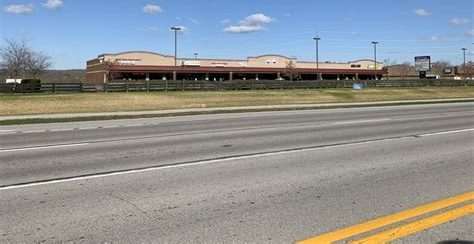
WASHINGTON – Today, President Biden and U.S. Transportation Secretary Pete Buttigieg announced $31,185,000 for two Kentucky for projects through the Reconnecting Communities Pilot and Neighborhood Access and Equity discretionary grant programs to restore disconnected areas as part of President Biden’s Investing in America Agenda.
The funding is aimed to restore and reconnect communities that were cut off by transportation infrastructure decades ago, leaving entire neighborhoods without direct access to opportunity, like schools, jobs, medical offices and places of worship.
The Biden-Harris Administration is taking historic action to deliver for communities that have been left behind for too long. Thanks to additional funding from the Inflation Reduction Act, this investment is 18 times larger than the investments from the previous year’s standalone Reconnecting Communities Pilot Program. Both programs are part of the President’s Justice40 Initiative.
“While the purpose of transportation is to connect, in too many communities past infrastructure decisions have served instead to divide. Now the Biden-Harris administration is acting to fix that,” said U.S. Transportation Secretary Pete Buttigieg. “Today we are proud to announce an unprecedented $3.3 billion to help 132 communities deliver better infrastructure that reconnects residents to jobs, health care, and other essentials.”
The Department has created a virtual story that spotlights communities’ stories, the historic context for the program, and the future it seeks through funding the reconnection of communities here.
In this round of funding for the Reconnecting Communities Pilot and Neighborhood Access and Equity program, Kentucky received two grants. Awarded projects include:
- $20,185,000 for Holmes Street Corridor Complete Street Reconnection Project in Frankfort – The Holmes Street Corridor Complete Street Reconnection Project will reconstruct its Holmes Street Corridor, an economically distressed and racially diverse area that serves as a key entry to the community from the east and north. High vehicle-traffic speeds, uncontrolled access, the lack of bike lanes, poor bus transit accommodations, and missing or obstructed sidewalks create an unsafe, unpleasant, and inefficient living, work, and travel environment for this key corridor.
To address these challenges and accelerate revitalization of the area, this project will reconnect the Holmes Street Corridor with downtown Frankfort and build upon previous grants received from the US Departments of Transportation and Housing and Urban Development for this project. The funding will support final design, right-of-way, utility, and construction phases.
- $11,000,000 for Veterans Memorial Lane Community Reconnection Project in Bowling Green – The Veterans Memorial Boulevard was built in the mid-1980s as a northern beltline around the downtown core of Bowling Green, Ky. The roadway project cut through the heart of an economically disadvantaged community with five lanes of pavement and high-speed vehicular traffic. The roadway created a barrier that separated neighbors on both sides. Residents on one side of the arterial are isolated from neighbors, a park, and an elementary school on the other side of the roadway.
Many residents, whose only means of transportation is by foot or bicycle, have had to navigate narrow sidewalks with few opportunities to safely cross this treacherous stretch of roadway. This project includes a roundabout at one key intersection and modifying the roadway corridor into a Complete Street by eliminating left turning traffic, providing a continuous refuge median for safer pedestrian crossings, and implementing roadside features, like wider sidewalks and street trees that restore visual cues to motorists to drive slower, which accommodates bicycle and pedestrian mobility in the corridor.
The full list of Reconnecting Communities Pilot and Neighborhood Access and Equity awards can be viewed here.
These programs are part of President Biden’s Justice40 Initiative, which set the goal that 40 percent of the overall benefits of certain Federal investments flow to disadvantaged communities that are marginalized by underinvestment and overburdened by pollution. The Department prioritized applications from disadvantaged communities that demonstrated strong community engagement and stewardship to advance equity and environmental justice, and would catalyze shared prosperity project development and job creation.
Last year, in the inaugural round of the Reconnecting Communities Pilot Program, the Biden-Harris administration awarded grants for transformative, community-led solutions, including capping interstates with parks, filling in sunken highways to restore the land for housing, and converting inhospitable transportation facilities to tree-lined Complete Streets. These projects will help revitalize communities, provide access to jobs and opportunity, and reduce pollution.
The Reconnecting Communities Pilot Program (RCP) in the Bipartisan Infrastructure Law has been combined with the newly-established Neighborhood Access and Equity discretionary grant program in the Inflation Reduction Act.
This joint application makes it more efficient and accessible than ever for project sponsors to apply for the historic levels of infrastructure funding made available by the Biden-Harris administration’s Investing in America agenda. While Reconnecting Communities and Neighborhoods grants can come from either program, they share important key characteristics including prioritizing disadvantaged communities — including rural, Tribal and urban communities — and improving access to daily needs and basic services.
The Reconnecting Communities and Neighborhoods program is a component of the department’s commitment to restore equity and the Biden-Harris administration’s commitment to supporting communities marginalized by underinvestment and overburdened by pollution, and strengthening equitable development. Restoring communities like those awarded grants today helps give everyone an equal chance to get ahead and opportunity to accessing jobs and essential services such as healthcare services, grocery stores, and places of worship. To find out more about what the Department is doing to support equity, see the recently updated Equity Action Plan, which can be viewed here.


















